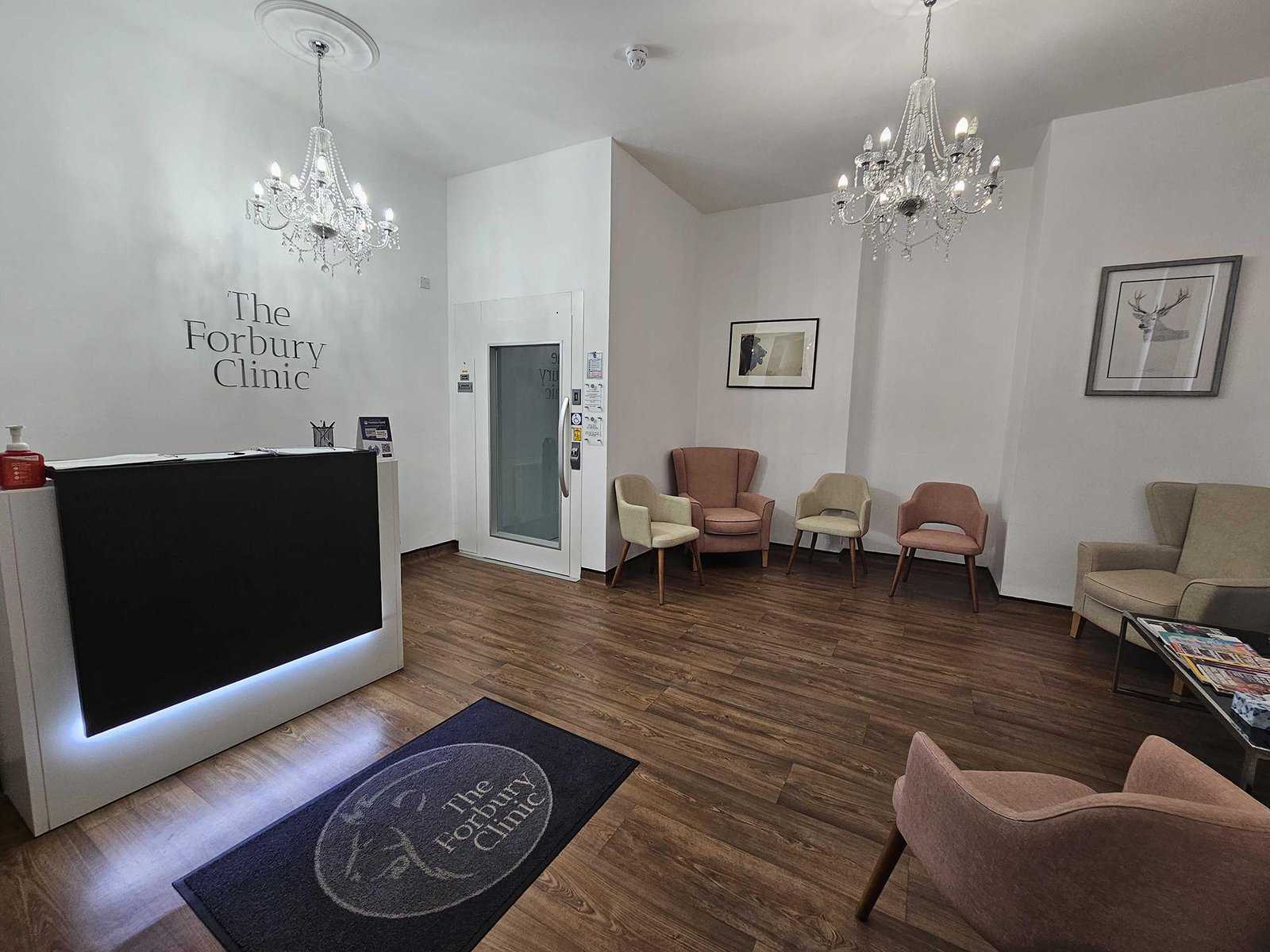Vertigo Treatment
Expert care for vertigo. Contact us for a consultation today.

Overview
Vertigo is a sensation of spinning or dizziness that can disrupt your daily life. It’s crucial to address vertigo promptly to prevent falls and improve your quality of life. At The Forbury Clinic, we specialise in diagnosing and treating vertigo, using advanced techniques to help you regain your balance and well-being.


What is Vertigo?
Vertigo is a specific type of dizziness characterised by a false sense of spinning or motion. It often results from problems in the inner ear or brain and can be triggered by changes in head position.
Common symptoms and signs include:
- A sensation of spinning or moving
- Nausea and vomiting
- Balance problems
- Sweating
- Abnormal eye movements
Causes and Risk Factors
Causes
Vertigo can be caused by various conditions, including:
Benign Paroxysmal Positional Vertigo (BPPV):
Small crystals in the inner ear become dislodged.
Ménière’s Disease:
Fluid buildup in the inner ear.
Vestibular Neuritis or Labyrinthitis:
Inflammation of the inner ear or nerves.
Migraines:
Vestibular migraines can cause vertigo.
Head Injury:
Trauma can affect the inner ear or brain.
Stroke or Tumours:
Rarely, vertigo can result from serious neurological conditions.
Risk Factors
Risk factors include:
Age:
Older adults are more prone to vertigo.
Head Injury:
Previous injuries increase the risk.
Inner Ear Infections:
Recurrent infections can lead to vertigo.
Family History:
A genetic predisposition to inner ear problems.
Diagnosis
Diagnosing vertigo involves:
- Medical History Review: Assessing symptoms and medical background.
- Physical Examination: Evaluating balance and inner ear function.
- Hearing and Balance Tests: Audiometry, electronystagmography (ENG), or videonystagmography (VNG).
- Imaging Tests: MRI or CT scans to rule out neurological causes.
- Blood Tests: Checking for infections or metabolic disorders.

Treatment Options
Treatment for vertigo depends on the underlying cause and includes:
Medications:
To relieve symptoms and treat underlying conditions.
- Antihistamines and Anticholinergics: Reduce dizziness and nausea.
- Benzodiazepines: For severe vertigo.
- Anti-nausea Medications: To manage vomiting.
Physical Therapy:
- Vestibular Rehabilitation: Exercises to improve balance and reduce symptoms.
- Canalith Repositioning Manoeuvres: For BPPV, specific movements to move dislodged crystals.
Lifestyle Modifications:
Staying hydrated, avoiding alcohol, and reducing stress.
Surgery:
For severe cases of Ménière’s disease or tumours.
Innovative treatments at The Forbury Clinic:
Epley Maneuver:
An effective procedure for treating BPPV.
Gentamicin Injections:
For severe Ménière’s disease, reducing inner ear function.
Managing Vertigo
Effective management includes:
Falls and related injuries
Anxiety and depression
Persistent balance problems
Reduced quality of life
Complications and Prognosis
- Untreated vertigo can lead to:
- Falls and related injuries
- Anxiety and depression
- Persistent balance problems
- Reduced quality of life
With appropriate treatment, the prognosis for vertigo is generally good, though some may experience recurrent episodes.


Why Choose The Forbury Clinic?
The Forbury Clinic offers expert care and advanced treatments for vertigo. Our experienced team uses cutting-edge technology to provide accurate diagnoses and personalised treatment plans. We prioritise patient-centred care, ensuring each patient receives the attention and support they need. Choose The Forbury Clinic for exceptional care, state-of-the-art facilities, and a compassionate approach to managing vertigo.
